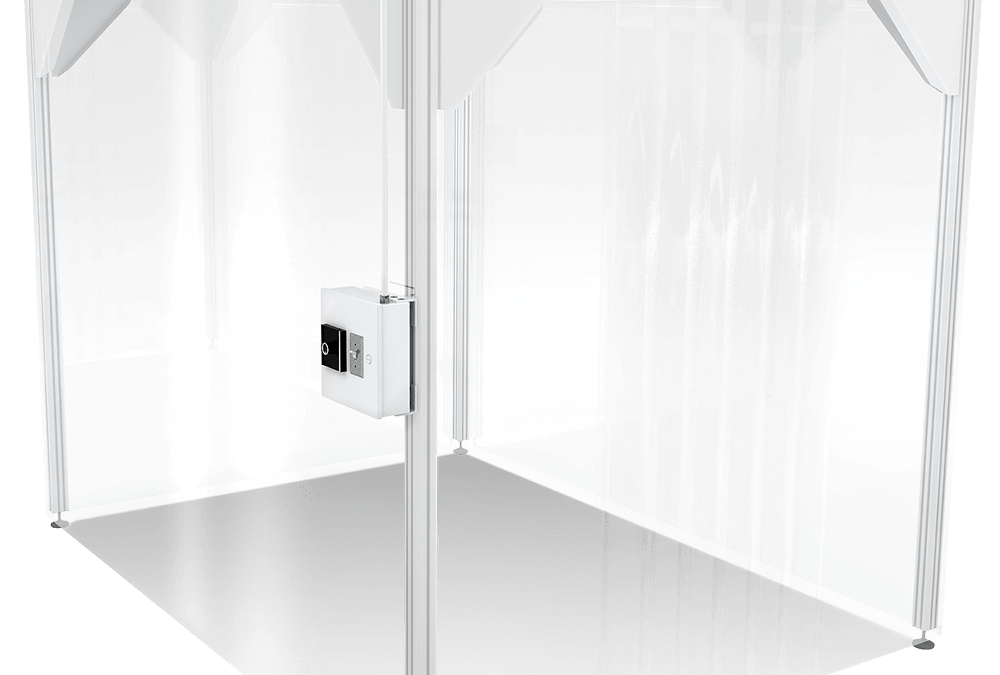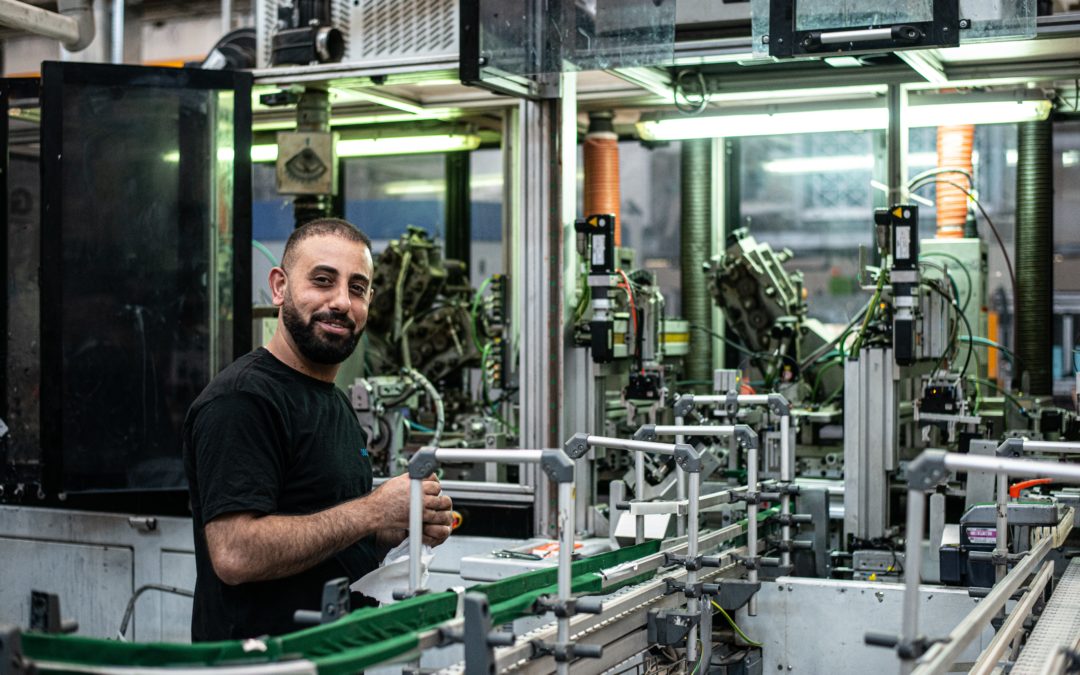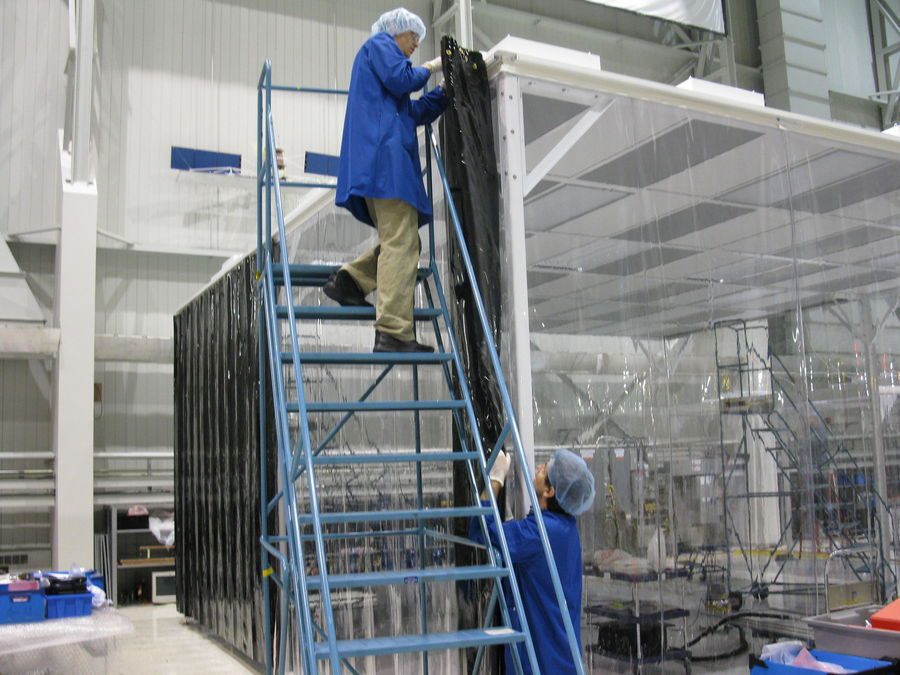
SoftWall Cleanroom Features
In this article, let’s take a closer look at SoftWall cleanrooms. We’ll discuss what they are, what special features and capabilities they provide, and what benefits they could bring to your cleanroom application.
What Are SoftWall Cleanrooms?
SoftWall cleanrooms are the most cost effective type of cleanroom. Known for their affordability and versatility, they’re minimalist, easy to install cleanrooms that can meet a variety of ISO standards. Because of these characteristics, they make great cleanroom options for industries and applications that have minimal space within their facility, are under a quick time frame to get the project completed, and don’t require strict environmental requirements such as: plastics manufacturing, automotive, and some medical cleanroom applications.
SoftWall Cleanroom Features
Depending on the specific application, every SoftWall cleanroom is designed and built differently. However, they all have some of the same basic features, which are listed in the three sections below:
SoftWall Cleanroom Materials
In the most basic sense, SoftWall cleanrooms consist of an extruded aluminum ceiling system, legs, and clear curtains around the perimeter. Additional specifications include:
- Ceiling System – A SoftWall cleanroom’s ceiling system consists of a detailed network full of extruded aluminum framework, fan filter units (FFUs), lights, and cleanroom ceiling tiles.
- Framing – SoftWall cleanroom framing is made of a durable, extruded aluminum, which is finished with white powder baked enamel or clear anodized.
- Curtains – SoftWall cleanroom curtains are made of 40, 60, or 80 mil acrylic, PVC, polycarbonate, anti-static PVC, or polysim. They’re typically clear curtains, but depending on your application you may require light wavelength control and UV absorption. Curtains are mechanically fastened to the structure in an extruded track around the perimeter of the room.
- Entrances – SoftWall cleanrooms are compatible with strip curtain entrances, which can either be stationary or on a sliding track.
SoftWall Cleanroom Sizes
SoftWall cleanrooms are available in standard sizes that come in 2’ x 4’ increments. However, many cleanroom manufacturers will allow you to request a custom size if needed.
SoftWall Cleanroom Standards
SoftWall cleanrooms are able to meet most ISO standards. However, they don’t provide as much environmental control as their HardWall and RigidWall counterparts.
Benefits of SoftWall Cleanrooms
So, what exactly makes SoftWall cleanrooms such a popular choice? Here are some of the most common reasons why our customers at Angstrom Technology enjoy them:
Unmatched Affordability
Due to their simple, minimal design, SoftWall cleanrooms are typically the most affordable type of cleanroom. However, it’s important to remember that if your application requires the high level of control that only HardWall or RigidWall cleanrooms can provide, you’re better off making that higher upfront investment than trying to pinch pennies and purchase an ineffective solution.
Extreme Reconfigurability
Also due to their simple, versatile design, SoftWall cleanrooms are more portable. They’re easy to move and modify, and they’re even able to fit into tight spaces other cleanroom types won’t because of their small footprint. This extreme reconfigurability results in their ability to provide a long-lasting investment.
Exceptional Versatility
Although SoftWall cleanrooms all have the same basic features, they can be built to meet your specifications. Whatever filtration systems, specialized equipment, or workspaces you need, they’re all able to be installed and accommodated in a SoftWall cleanroom.
Quick & Easy Installation
With minimal required materials and a relatively simple design, SoftWall cleanrooms can typically be installed within just a few days. Of course, this timeline depends on your project’s size and scope — but, overall, they’re the quickest type of modular cleanroom to build and install.
The combination of low-cost and high versatility makes SoftWall cleanrooms an appealing option for any growing business. Think a SoftWall cleanroom might be right for your application? Angstrom Technology can help! Our team has extensive experience designing, installing, and servicing all types of cleanrooms, and we’re ready to aid in the development of yours. To get started, give us a call or contact us online today.




